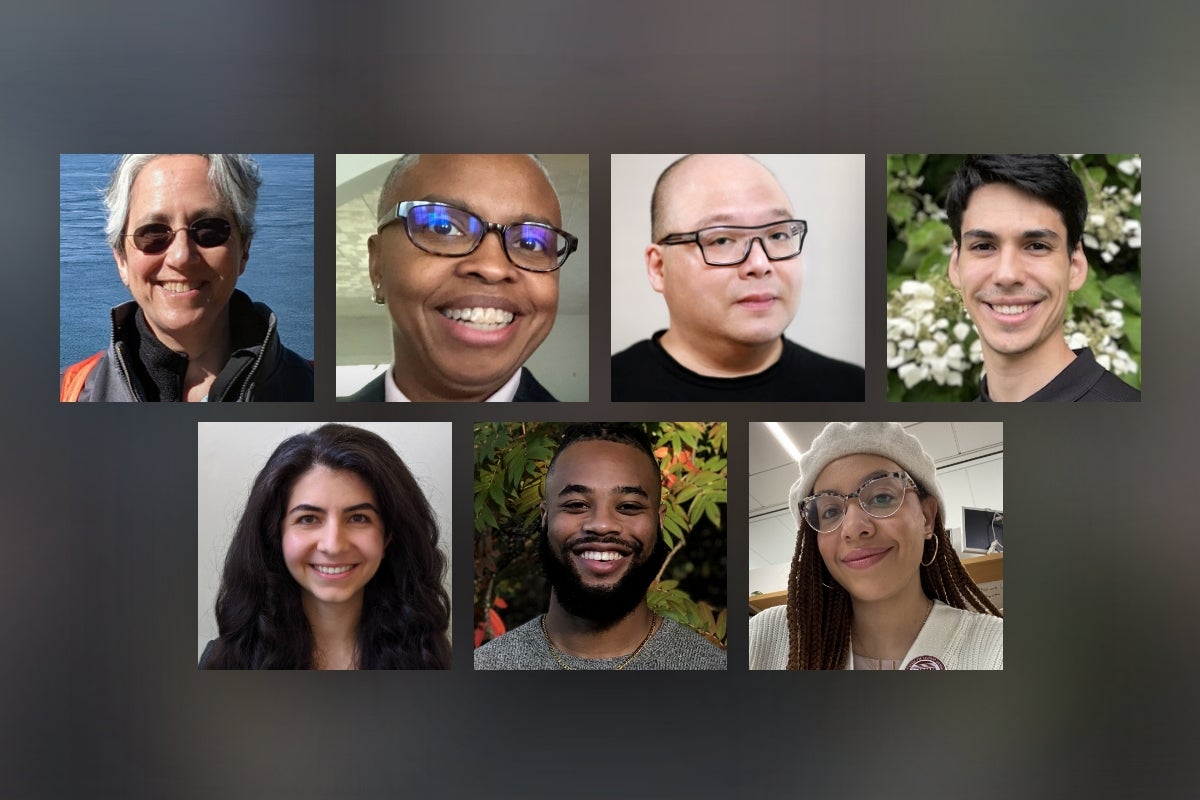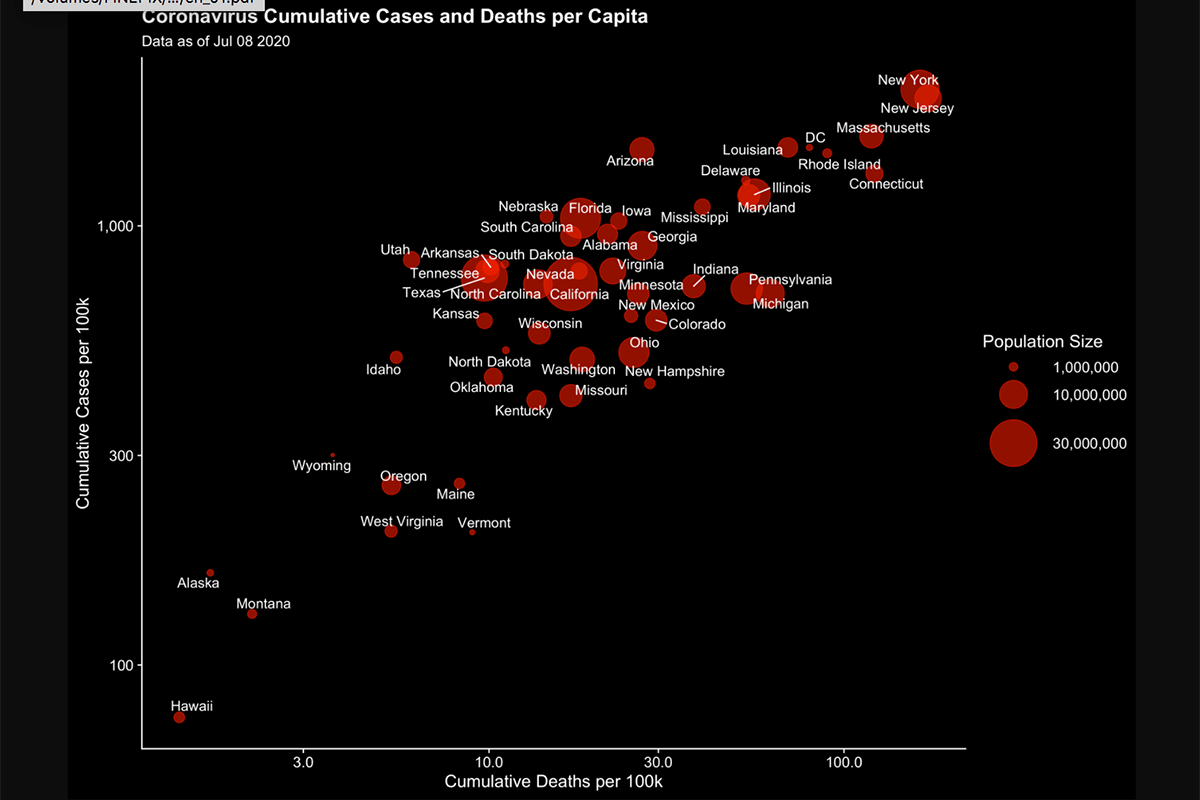Project uses geographic data to show that where a person lives matters to their health
Harvard Chan School's Nancy Krieger and colleagues have updated and broadened a project aimed at training people in how to track and monitor socially related disparities having to do with where a person lives.

Political ideology of U.S. elected officials linked with COVID-19 health outcomes
Study finds the higher the exposure to political conservatism, the higher the COVID-19 mortality rates and stress on ICU capacity

What the U.S. did wrong with COVID-19
An article co-authored by Harvard Chan School researchers assessed federal missteps in responding to the COVID-19 pandemic that have led the U.S. to experience some of the most severe outcomes in the world.
Data animation shows time lag between COVID-19 cases and deaths
A new data visualization created by Harvard Chan School researchers depicts the connection between COVID-19 case rates and deaths, and illustrates clearly the time lag between the two.

How many years of life lost due to COVID? More than 138,000.
An analysis of all the people who died of documented COVID-19 in the U.S. estimates that more than 138,000 years of potential human life have been lost before age 65. The analysis also found a wide disparity in…

How racism impacts human health
After Boston Mayor Marty Walsh declared on June 12 that racism is a public health crisis in Boston, several local public health experts—including Jarvis Chen, research scientist in the Department of Social and Behavioral Sciences at Harvard T.H.…

Analysis: MA communities already facing challenges hit hardest by COVID-19
In Massachusetts, the overall mortality rate during the early weeks of the coronavirus pandemic was highest in cities, towns, and ZIP codes with widespread economic segregation and heavy concentrations of poverty, people of color, and crowded housing, according…
Does Santa only visit rich kids?
For immediate release: Wednesday, December 14, 2016 Boston, MA – Contrary to the popular notion that Santa gives presents to children who are “nice” and not “naughty,” it may be that visits from Santa have more to do with socioeconomic…
